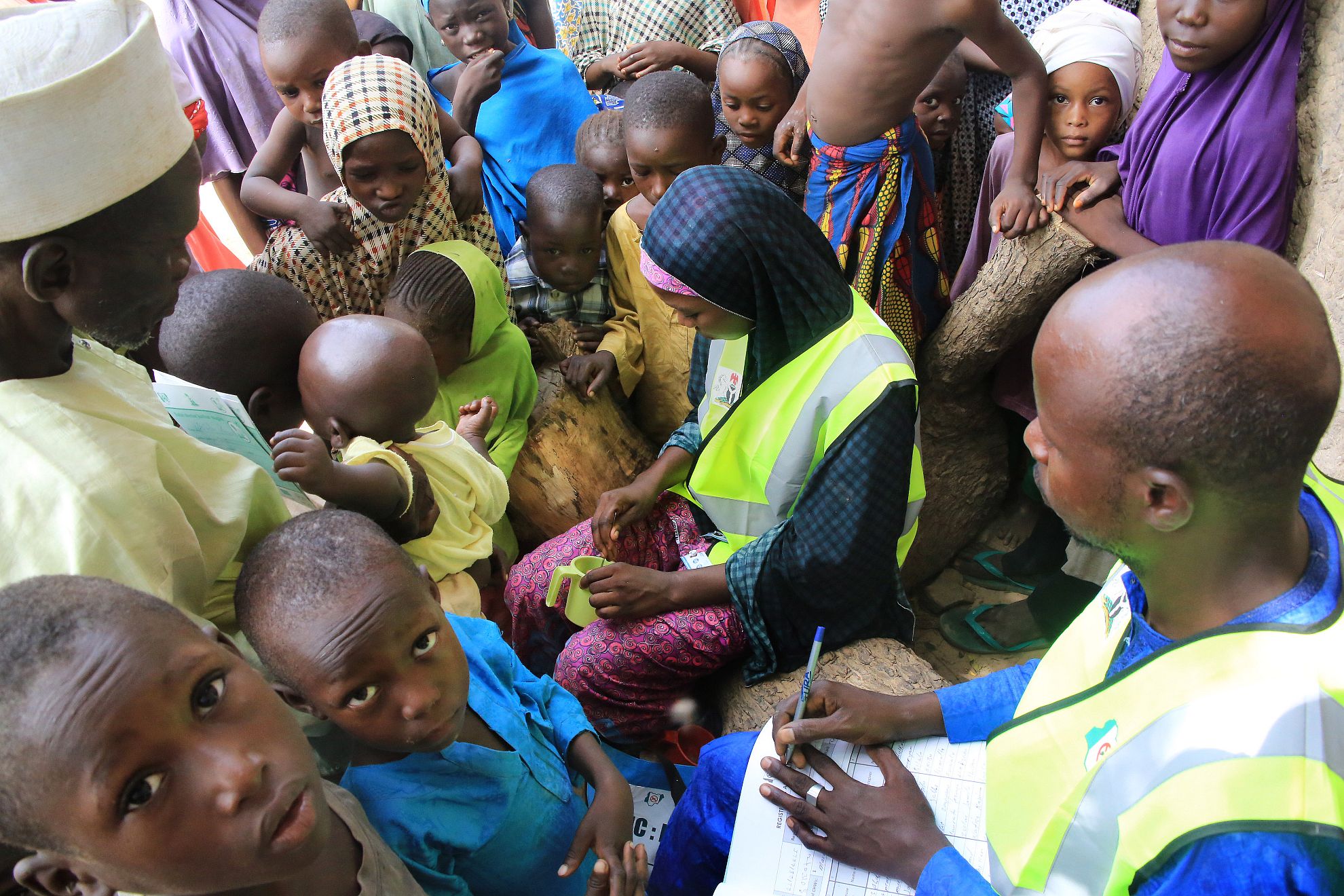
Encouraging results after year 1 of ACCESS-SMC mass drug distributions
16 December 2015For the 25 million children who live across Africa’s Sahel region, the rainy season produces a seasonal surge in sickness and death from malaria. The World Health Organization thus recommends seasonal malaria chemoprevention (SMC) as an effective tool to prevent malaria, but only 3.5 million children received this preventive treatment in 2014.
Achieving Catalytic Expansion of Seasonal Malaria Chemoprevention in the Sahel (ACCESS-SMC) is the first project of its type promoting the scale-up of SMC across the Sahel. ACCESS-SMC is a UNITAID-funded project led by Malaria Consortium, in partnership with Catholic Relief Services, and which over the next two years will provide an estimated 45 million treatments to more than 10 million vulnerable children across seven countries: Burkina Faso, Chad, Guinea-Conakry, Mali, Niger, Nigeria and The Gambia.

Dr. Yacouba Savadogo, representative of the National Malaria Control Programme in Burkina Faso, recently discussed the lessons learnt and the impact of the ACCESS-SMC project to date at a tropical health conference, highlighting key results from Burkina Faso and demonstrating significant reductions in malaria cases and malaria-related deaths (31 percent and 44 percent respectively), following the first two cycles of SMC drug distributions.
“The reduction in cases is in line with evidence from past clinical trials, and is extremely encouraging”, said ACCESS-SMC’s Project Director, Diego Moroso. “Similar preliminary indications of reduction in malaria-related morbidity and mortality are coming from other countries, such as Chad and Nigeria. Besides data reported from health centres, anecdotal evidence is strong and everywhere we visit, health workers are quick to highlight how health facilities are emptier this year with far fewer sick children.”
“We are confident about the information we’ve started to receive and we are currently working with The London School of Hygiene and Tropical Medicine and national Ministries of Health to scientifically corroborate these data; by early next year we hope to confirm beyond any reasonable doubt the results we’re witnessing now,” Mr. Moroso added.
Over the next two years, ACCESS-SMC will work with national governments and international donors to help secure additional resources so that more children can benefit from this highly effective approach to malaria prevention, both now and into the future.
Latest news
- Malaria Consortium honoured by Ugandan government for contribution to combat malaria23rd April 2024
- International summit calls for AMR accountability in public health interventions21st March 2024
- Global SMC community celebrates new milestone at SMC Alliance Annual Meeting in Nigeria6th March 2024
- Scaling up key interventions could halve pneumonia-related childhood mortality13th February 2024
- Malaria Consortium and eGov Foundation join Mozambique’s national malaria programme to digitalise seasonal malaria chemoprevention campaigns8th February 2024
- World’s first malaria vaccine rollout launched in Cameroon22nd January 2024